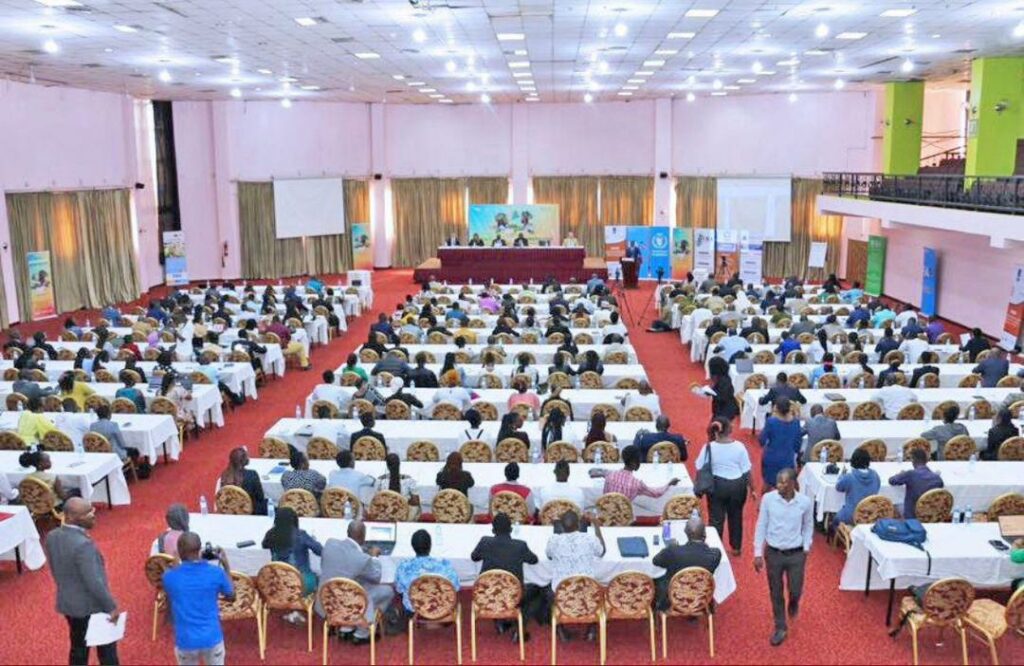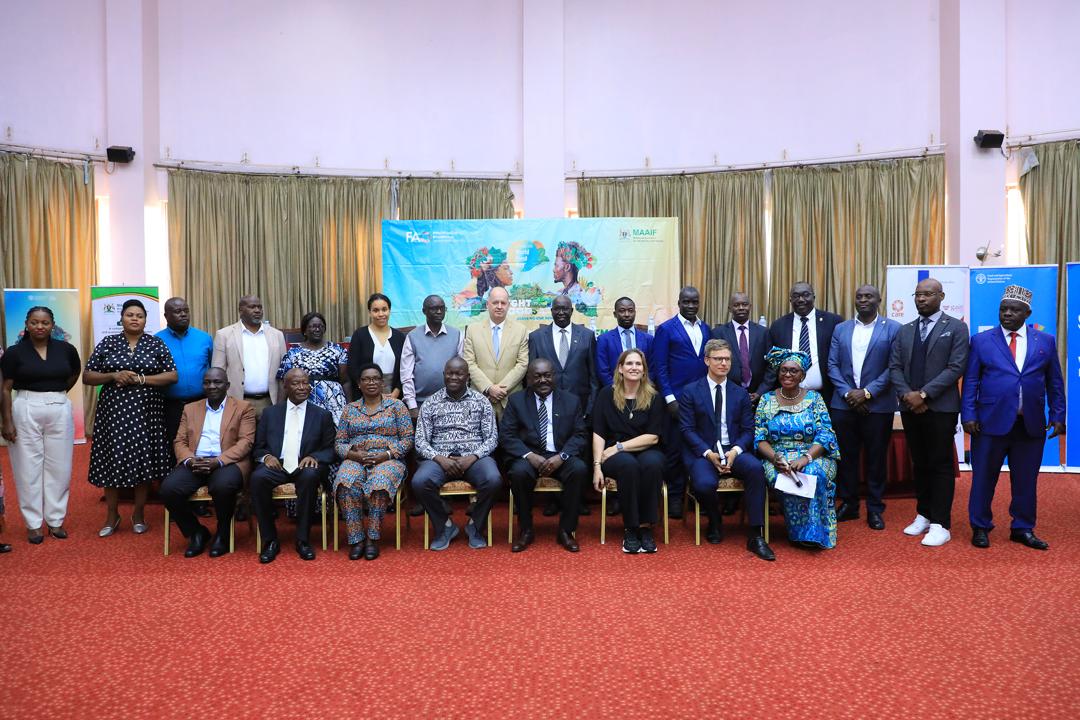Kampala, Uganda – On Friday, October 18th, 2024, over 500 key stakeholders in the Agri-Food system gathered at the Imperial Royale Hotel for a National High-Level Policy Dialogue to mark the 44th World Food Day. The event, spearheaded by the Ministry of Agriculture, Animal Industry, and Fisheries (MAAIF) and co-convened by the Food Rights Alliance (FRA), brought together government officials, civil society organizations, international development agencies, academia, embassies, and private sector representatives to address Uganda’s pressing food security challenges.
Under the theme “Right to Food, for a Better Life and a Better Future,” the dialogue centered around the need for comprehensive strategies to tackle food insecurity, hunger, and malnutrition, which continue to affect millions of Ugandans, despite the country’s role as a major food producer. Participants emphasized the importance of ensuring access to safe, nutritious, and sufficient food for all Ugandans, especially the most vulnerable populations, including women, children, and rural communities.
Ms. Agnes Kirabo, Executive Director of the Food Rights Alliance, highlighted that food is not merely a commodity but a fundamental human right. She expressed concern that while Uganda is rich in food production potential, a significant portion of the population faces hunger and malnutrition due to climate change, poverty, and economic inequality. “Urgent, coordinated efforts are needed to address these challenges, especially for the most vulnerable,” Kirabo remarked, urging stakeholders to work together to build resilient food systems.
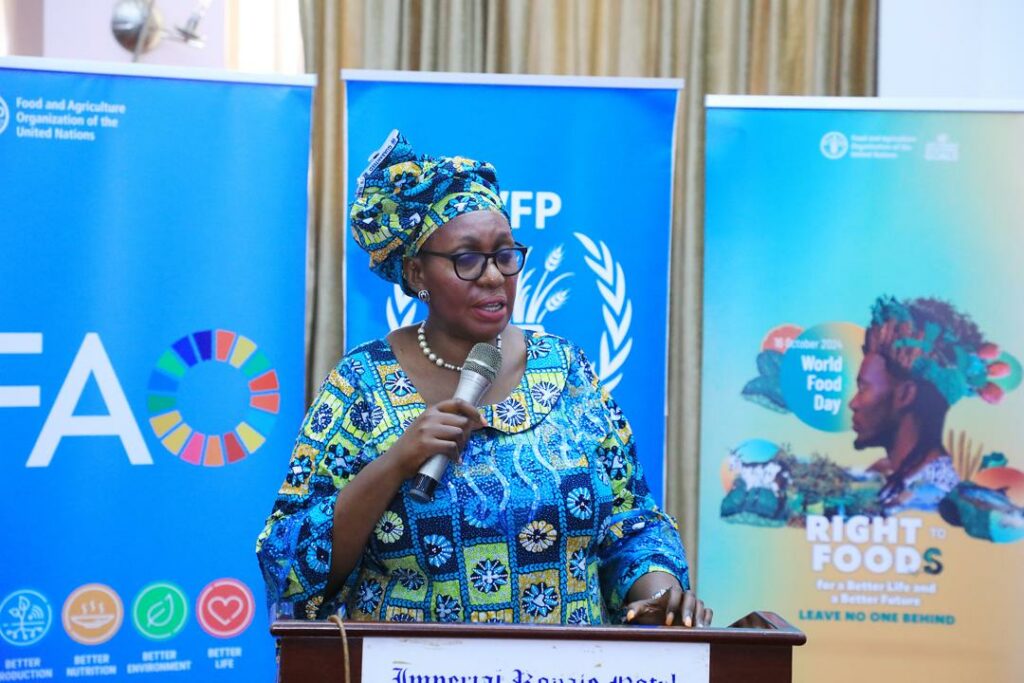
The dialogue also featured a keynote address by a representative of the Country Director of Care International Uganda – Mr. Babu Edton, who presented alarming statistics about child malnutrition in Uganda. “With 24% of children stunted and only 10% of the population consuming a diverse range of nutritious foods, the need for action is clear,” the representative noted. He called for the swift enactment of the Food and Nutrition Bill, emphasizing that existing government initiatives must be paired with robust implementation strategies.
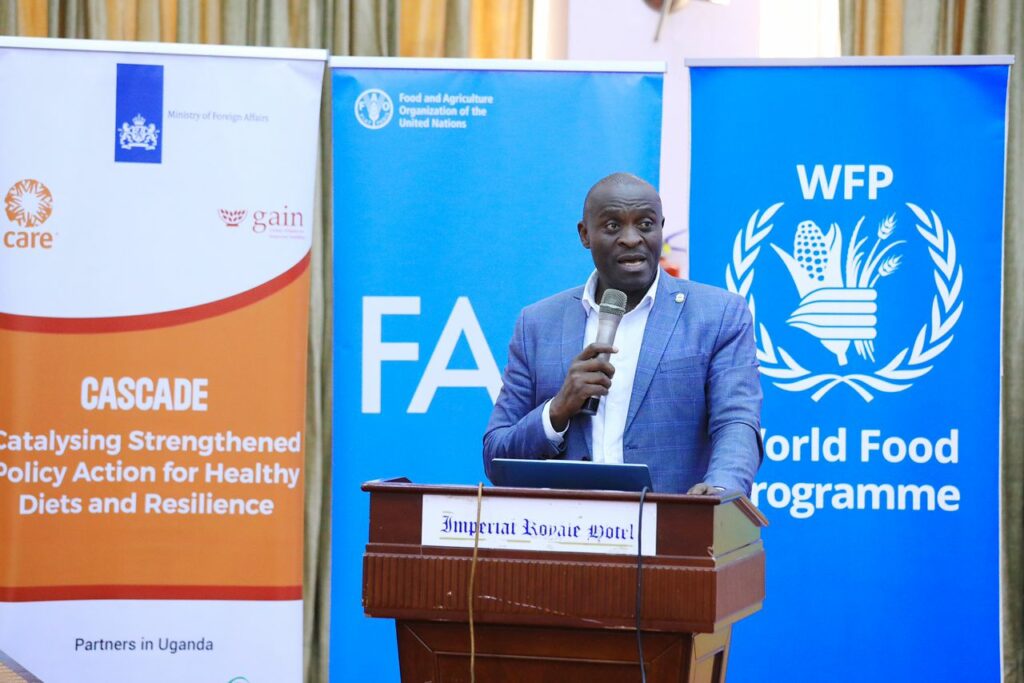
UNICEF’s representative and Head of Nutrition, Mr. Zakaria Fusheini, echoed these concerns, emphasizing that food insecurity leads to dire outcomes such as stunting and wasting, which put the lives of Uganda’s children at risk. He called for immediate action to protect children’s right to adequate nutrition, urging stakeholders to prioritize children in all food security and nutrition efforts.
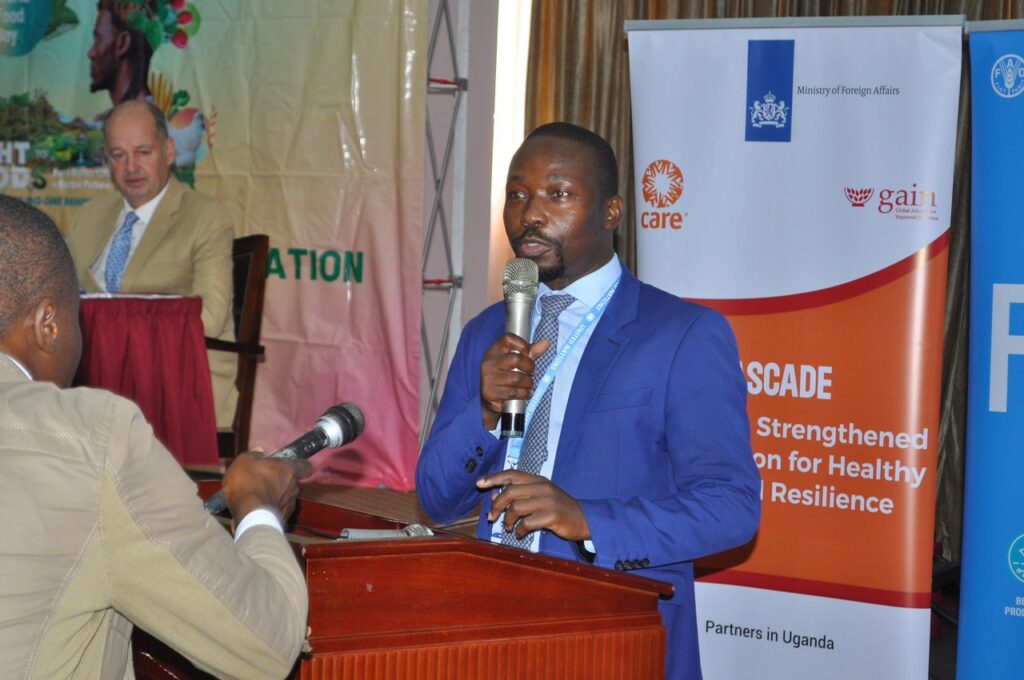
Dr. Paul Mwambu, Commissioner for Crop Inspection and Certification at MAAIF Uganda
emphasized the crucial role of crop inspection in ensuring food security in Uganda. Speaking on behalf of the Minister for Agriculture, Animal Industry, and Fisheries, Dr. Mwambu highlighted the need to regulate seed quality and provide farmers with access to high-quality agricultural chemicals. He also stressed the importance of managing plant health by controlling the import and export of plant products to prevent pests and diseases.
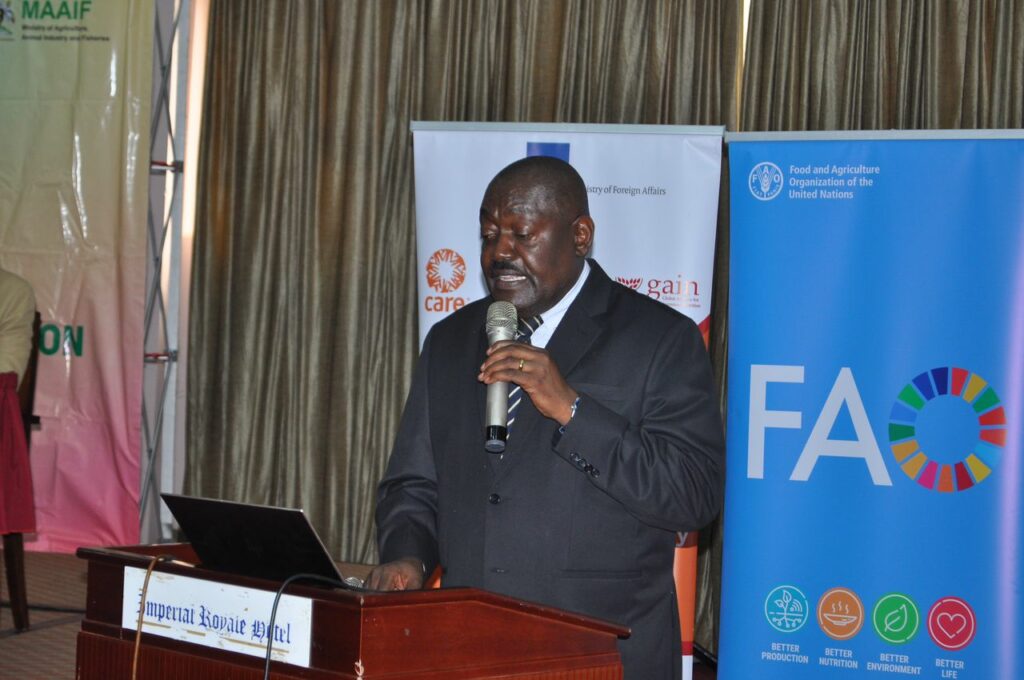
As the dialogue concluded, participants agreed that immediate actions are needed to ensure food security, improve nutrition, and protect the rights of all Ugandans to access sufficient food. The call to action focused on enhancing agricultural production, expediting the passage of key legislation, and ensuring that all stakeholders, from government to civil society, work collaboratively to build a food-secure Uganda.
